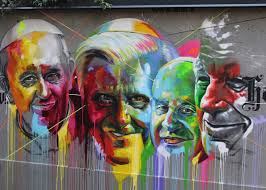What We See in the Mirror

Google Image Of all the media images related to the pandemic, none have affected me more than images of nursing-home residents deprived of visits from loved ones. Nursing-home residents are often shown sitting in front of a window trying to communicate with a spouse, daughter, son, or friend on the outside. But gesturing through glass is a poor substitute for a hug. Many nursing-home residents, I’m sure, deal with loneliness and isolation just at the time of their lives when they most need love and companionship. Undoubtedly the images affect me so because I’m of nursing-home age. I could easily be living in a nursing home. Were it not for my current good health, I would probably be there now. Mirror in the Face of Society Despite all its harm, the pandemic is placing a mirror in the face of society. For all our heralded internet connectedness, the ease with which we discover and invent new things, and for our scientific advances – including those in medicine – we don’t seem to h



